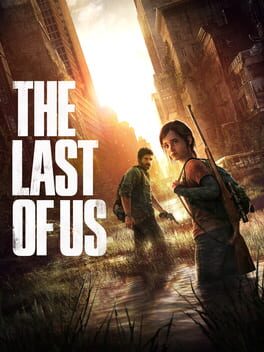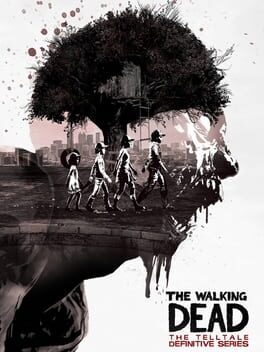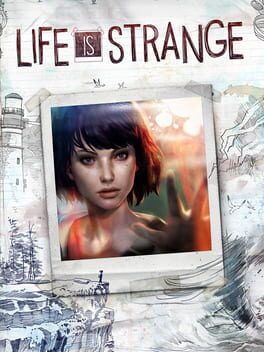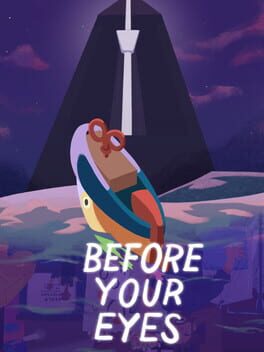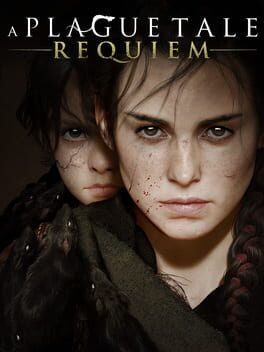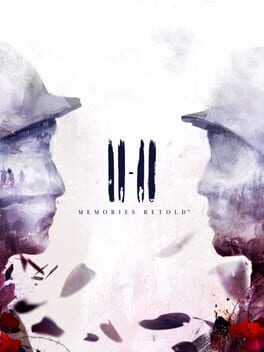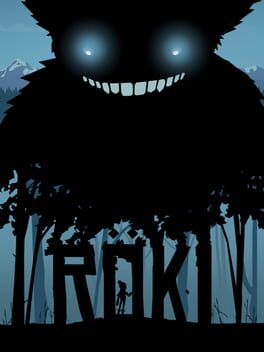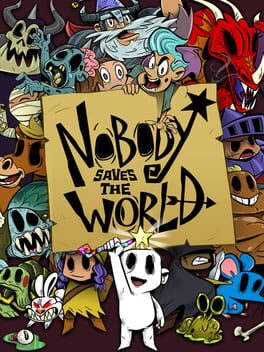carpanese
Bio
Hello, I am an amateur player who likes to play with a certain frequency and choose those focused on good narratives. My criteria is:
★★★★★ = It changed my file.
★★★★½ = It is perfect or a near perfect game.
★★★★ = It is a very nice game, but with a sufficient number of mistakes.
★★★½ = It is a good game.
★★★ = It is a good game, but it wouldn't have made any difference if it hadn't existed.
★★½ = It was painful to finish.
★★ = It was so bad I didn't even feel like continuing to play.
★½ = It was a waste of time, bordering on disrespect for the player.
Hello, I am an amateur player who likes to play with a certain frequency and choose those focused on good narratives. My criteria is:
★★★★★ = It changed my file.
★★★★½ = It is perfect or a near perfect game.
★★★★ = It is a very nice game, but with a sufficient number of mistakes.
★★★½ = It is a good game.
★★★ = It is a good game, but it wouldn't have made any difference if it hadn't existed.
★★½ = It was painful to finish.
★★ = It was so bad I didn't even feel like continuing to play.
★½ = It was a waste of time, bordering on disrespect for the player.
Badges

Roadtrip
Voted for at least 3 features on the roadmap
Favorite Games
009
Total Games Played
014
Played in 2024
011
Games Backloggd
Recently Played See More
Recently Reviewed See More
This review contains spoilers
I can't even remember how many years it's been since the last time I finished a game and thought: "wow, this is definitely one of the best games I've ever played". A Plague Tale: Requiem isn't perfect, but it's close. The storytelling in this game is nearly flawless. While some story choices might feel frustrating sometimes, each decision and event has a clear reason for happening.
The opening chapters are slow-burning. While the pacing might drag at times, with repetitive missions and Lucas as a less engaging companion, these sections are crucial. They introduce a cruel but necessary thought into the player's mind: Hugo's presence brings destruction, and his death could be the only way to save countless lives.
Keeping Amicia accompanied only by Lucas was, however, a missed opportunity during the opening chapters. Having Béatrice, Amicia's mother, by her side would have added dynamism and emotional weight. Witnessing Amicia's transformation firsthand could have significantly developed Béatrice's character, and amplified the impact of her death, which felt lessened due to her limited screen time.
The game dramatically improves when Arnaud replaces Lucas. He and Sophia were fantastic surprises, well-developed characters whose unique abilities genuinely helped the game's progression. The "special ability" of the supporting characters was very well-worked on from that moment on, and I often had the feeling of "damn, how I wish Arnaud/Sophia were here, it would make this moment so much easier". It's a shame Lucas wasn't developed enough to inspire the same feeling. Overall, the new characters far outshine those from the first game. However, even with Arnaud and Sophia, I missed a third new companion, that could have added even more depth.
The narrative's brilliance lies in its subtlety. Without any character having to say it explicitly, the player was slowly building the cruel idea that Hugo needed to die. The developers also took a bold risk by setting nearly half the game in La Cuna, especially considering the story's global impact. Fortunately, it paid off.
Technically, there's room for improvement with the game. In the first half, I experienced noticeable frame rate drops. The background NPC animations were distractingly repetitive. Climbing animations lacked variety, suggesting a lack of polish. Additionally, the limited facial expressions and poor lip-syncing made emotions difficult to read. Amicia's crying and laughing looked too similar. Lastly, the stealth mechanics felt simplistic; I could often run and lock doors to escape on normal difficulty, making it feel a bit unrealistic.
A Plague Tale: Requiem has earned a special place on my list of all-time favorite games. This series has so much to unpack! I'm eager to dive deeper into the intricate details and craft theories about what the future holds. It's been ages since a game left me this excited!
The opening chapters are slow-burning. While the pacing might drag at times, with repetitive missions and Lucas as a less engaging companion, these sections are crucial. They introduce a cruel but necessary thought into the player's mind: Hugo's presence brings destruction, and his death could be the only way to save countless lives.
Keeping Amicia accompanied only by Lucas was, however, a missed opportunity during the opening chapters. Having Béatrice, Amicia's mother, by her side would have added dynamism and emotional weight. Witnessing Amicia's transformation firsthand could have significantly developed Béatrice's character, and amplified the impact of her death, which felt lessened due to her limited screen time.
The game dramatically improves when Arnaud replaces Lucas. He and Sophia were fantastic surprises, well-developed characters whose unique abilities genuinely helped the game's progression. The "special ability" of the supporting characters was very well-worked on from that moment on, and I often had the feeling of "damn, how I wish Arnaud/Sophia were here, it would make this moment so much easier". It's a shame Lucas wasn't developed enough to inspire the same feeling. Overall, the new characters far outshine those from the first game. However, even with Arnaud and Sophia, I missed a third new companion, that could have added even more depth.
The narrative's brilliance lies in its subtlety. Without any character having to say it explicitly, the player was slowly building the cruel idea that Hugo needed to die. The developers also took a bold risk by setting nearly half the game in La Cuna, especially considering the story's global impact. Fortunately, it paid off.
Technically, there's room for improvement with the game. In the first half, I experienced noticeable frame rate drops. The background NPC animations were distractingly repetitive. Climbing animations lacked variety, suggesting a lack of polish. Additionally, the limited facial expressions and poor lip-syncing made emotions difficult to read. Amicia's crying and laughing looked too similar. Lastly, the stealth mechanics felt simplistic; I could often run and lock doors to escape on normal difficulty, making it feel a bit unrealistic.
A Plague Tale: Requiem has earned a special place on my list of all-time favorite games. This series has so much to unpack! I'm eager to dive deeper into the intricate details and craft theories about what the future holds. It's been ages since a game left me this excited!
This review contains spoilers
Röki is a game that addresses death, family relationships, and, consequently, the impact of death on family relationships. The game addresses these issues from a child's perspective, constantly conveying a heartache feeling. The story develops along with the maturation of the character's relationship with the death of Eva, Tove's mother. This development is very well written and very beautiful, but it doesn't make the game cozy because it constantly hurts. Despite not being a cozy game, it is indeed a peaceful game, as the characters' maturity makes them come to peace with themselves. And we have the opportunity to experience their whole process of maturation.
We can better appreciate the game if we think about what it would be like if it had gone down a different path. Imagine that Eve hadn't died, but was in the forest helping to restore it. Or that she had some relationship with the Jötnar, and that she had needed to fake her death for some reason. The characters would never have the chance to develop. Fortunately, the game took the story in exactly the opposite direction.
By making Eva's death something definitive and real, the game allowed Tove and Henrik to develop. At the beginning of the playthrough, I didn't know how Henrik would behave throughout the story. I was afraid Henrik was a character who could only be happy again if Eva appeared alive somehow. That was not the case. He became a healthier person, and his participation in the third chapter was incredible. Playing with father and daughter explored very well the feeling of family unity, and how it is fundamental to overcoming past shared traumas.
Röki made me reflect on why the study of literature at school doesn't treat video games with the same care as it does with books. Röki, as well as What Remains of Edith Finch, contributed greatly to the literature on death, leaving nothing to be desired compared to great classics such as The Death of Ivan Ilych. Röki is a game that helps us mature our relationship with death and appreciate what we have while we have it.
We can better appreciate the game if we think about what it would be like if it had gone down a different path. Imagine that Eve hadn't died, but was in the forest helping to restore it. Or that she had some relationship with the Jötnar, and that she had needed to fake her death for some reason. The characters would never have the chance to develop. Fortunately, the game took the story in exactly the opposite direction.
By making Eva's death something definitive and real, the game allowed Tove and Henrik to develop. At the beginning of the playthrough, I didn't know how Henrik would behave throughout the story. I was afraid Henrik was a character who could only be happy again if Eva appeared alive somehow. That was not the case. He became a healthier person, and his participation in the third chapter was incredible. Playing with father and daughter explored very well the feeling of family unity, and how it is fundamental to overcoming past shared traumas.
Röki made me reflect on why the study of literature at school doesn't treat video games with the same care as it does with books. Röki, as well as What Remains of Edith Finch, contributed greatly to the literature on death, leaving nothing to be desired compared to great classics such as The Death of Ivan Ilych. Röki is a game that helps us mature our relationship with death and appreciate what we have while we have it.
This review contains spoilers
Nobody Saves the World is not a revolutionary RPG game, but it brings a ton of innovation to the genre. The game takes all of the classic RPG elements and adds something new. Classes, level progression, quests, skill sets, and character impersonation all have a unique interpretation here.
The story, although simple, is also quite unpredictable. The answer to the main mystery surrounding the game is literally on its poster, but you can only notice it after the first playthrough. Making Astrolabus seem accountable for the fungal infection, while the main character is the real culprit, was an interesting plot twist I was not expecting from a game that initially appears so naive. While not a revolutionary idea, many stories have used this plot twist before, the fact that it was unpredictable is a testament to how well it was told and demonstrates the strength of its narrative.
It is worth mentioning that, at the beginning of the game, I felt a familiar sensation. Indeed, its storytelling is very similar to the Guacamelee! series, and only later did I discover that they were made by the same studio. The jokes are perfectly timed and fit seamlessly into the story, enhancing the charisma of secondary characters and even NPCs with no major relevance to the plot. Once again, Drinkbox Studios has created a game that evokes the nostalgic feeling of playing video games while innovating at the same time.
I postponed playing Nobody Saves the World because I underestimated it. I thought it would be a very simple game, and in some ways, it is. However, it is not just that. It is a funny and innovative attempt to create something new in the RPG genre.
The story, although simple, is also quite unpredictable. The answer to the main mystery surrounding the game is literally on its poster, but you can only notice it after the first playthrough. Making Astrolabus seem accountable for the fungal infection, while the main character is the real culprit, was an interesting plot twist I was not expecting from a game that initially appears so naive. While not a revolutionary idea, many stories have used this plot twist before, the fact that it was unpredictable is a testament to how well it was told and demonstrates the strength of its narrative.
It is worth mentioning that, at the beginning of the game, I felt a familiar sensation. Indeed, its storytelling is very similar to the Guacamelee! series, and only later did I discover that they were made by the same studio. The jokes are perfectly timed and fit seamlessly into the story, enhancing the charisma of secondary characters and even NPCs with no major relevance to the plot. Once again, Drinkbox Studios has created a game that evokes the nostalgic feeling of playing video games while innovating at the same time.
I postponed playing Nobody Saves the World because I underestimated it. I thought it would be a very simple game, and in some ways, it is. However, it is not just that. It is a funny and innovative attempt to create something new in the RPG genre.
